Related Research Articles
A student society, student association, university society, student club, university club, or student organization is a society or an organization, operated by students at a university, college, or other educational institution, whose membership typically consists only of students and/or alumni.

The New York University Tandon School of Engineering is the engineering and applied sciences school of New York University. Tandon is the second oldest private engineering and technology school in the United States.

The Norwegian University of Life Sciences is a public university located in Ås, Norway. It is located at Ås in Akershus and has around 7700 students.

Peter Andreas Blix was a Norwegian architect and engineer best known for designing railway stations and villas in Swiss chalet style. He was also occupied with the conservation of Norwegian stave churches and the construction of canals in 19th century Norway.
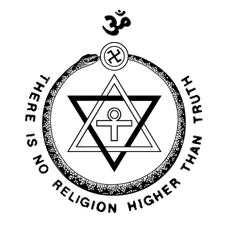
Theosophy in Scandinavia is represented by many independent lodges.
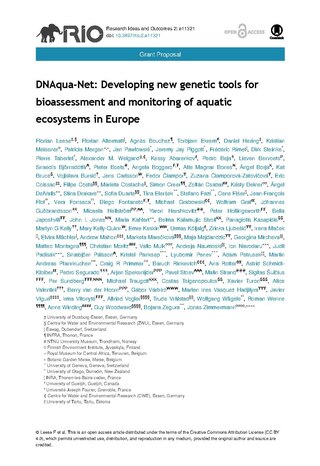
The European Cooperation in Science and Technology is running an EU-funded programme which enables researchers and innovators to set-up their own research networks in a wide range of scientific topics, called COST Actions. While COST does not fund research activities as such, it provides funding for scientific collaboration in the form of conferences, meetings, training schools and scientific exchanges.

Christian Holtermann Knudsen was a Norwegian typographer, newspaper editor, publisher, trade unionist and politician for the Norwegian Labour Party. He is known as chairman of his party in three non-consecutive periods, and also founded what would become the main party newspaper. He served three terms in the Norwegian Parliament.
Hans Jacob Neumann Ustvedt was a Norwegian medical doctor and broadcasting administrator. He was a driving force of the doctors' resistance during World War II, had to flee to Sweden in 1942, and was leading the medical office at the Norwegian legation in Stockholm. He was a professor of internal medicine at the University of Oslo from 1951 to 1962, and Director-General of the Norwegian Broadcasting Corporation (NRK) from 1962 to 1972.
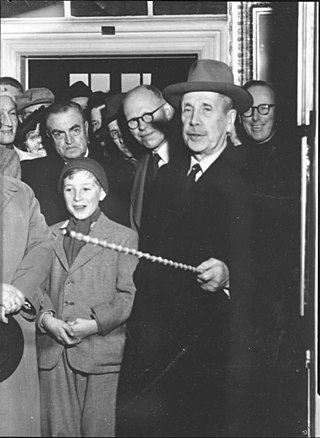
Stian Herlofsen "S. H." Finne-Grønn was a Norwegian lawyer, archivist, genealogist and museum director. He was widely regarded as Norway's preeminent genealogist of the 20th century. He founded and chaired the Norwegian Genealogical Society and edited the main Norwegian journals of genealogy and personal history, Norsk Personalhistorisk Tidsskrift and Norsk Slektshistorisk Tidsskrift. He served as director of Oslo Museum and as the archivist of Oslo Municipality.
Cornelius Severin Scheel Schilbred, often referred to as C. S. Schilbred was a Norwegian genealogist, historian and educator. A school teacher and headmaster by occupation, he wrote extensively, and chaired the Norwegian Genealogical Society and the Norwegian Heraldry Society.
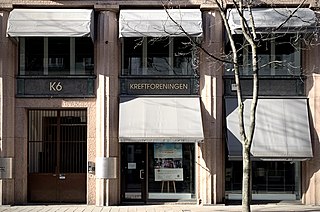
The Norwegian Cancer Society is a non-profitmaking organisation in Norway.
The Association of Norwegian Theatres and Orchestras is an employers' organisation in Norway for theatre and symphony orchestra institutions.
Hartvig Caspar Christie was a Norwegian mineralogist and physicist.
Stina Torjesen is an associate professor at the University of Agder. She is researching the themes emerging markets, sustainability and regional cooperation with particular emphasis on Kazakhstan, India and Afghanistan.
Minerva is a Norwegian conservative periodical that started publishing in 1924. It was started by members of the Conservative Students' association in Oslo, and is traditionally the journal of conservative students. The magazine journal positioned itself at the intersection of mainstream conservatism and radical right-wing currents, and supported the Nazi seizure of power in Germany during the 1930s. In the 21st century the magazine has also published several anti-LGBT+ and "anti-woke" writers. In 2024, Nils August Andresen is executive editor, Torbjørn Røe Isaksen editor on society, Kristian Meisingset on culture and Fredrik Gierløff on politics. Magnus Thue is chief executive officer. It receives financial support from Liberal Science Institute, Norwegian Agency for Development Cooperation and the Conservative Party of Norway.
Lars Siegfried Karlsen, usually referred to as L. S. Karlsen was a Norwegian engineer and businessperson.
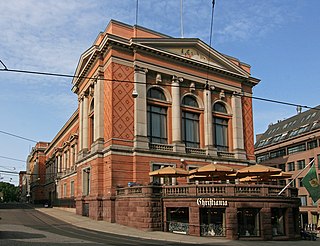
The Conservative Press Association was a Norwegian media institution whose stated objective was the furtherance of conservative daily newspapers. Amongst its members were editors, journalists, publishers and businesspeople who were involved in declared conservative newspapers. The activity in the association faded out concurrently with the discontinuance of party newspapers in Norway.
Oscar Collett was a Norwegian landowner and benefactor.
Andreas Fredrik Falkenberg is a Norwegian engineer, businessperson and politician for the Conservative Party.
The Society for Orthodontic Dental Technology is a professional body that represents orthodontic technicians and is based in Germany. Established in 1990, the society was founded by Friedbert Schmeil, who served as the society's first chairman until 1997.
References
- ↑ "English" (in Norwegian). Polytechnic Society. Archived from the original on 18 July 2011. Retrieved 28 August 2011.
- ↑ Losnegård, Gaute; Losnegård, Rolf (2001). Peter Andreas Blix. I strid for vern og vekst. Førde & Leikanger: Selja & Skald. p. 106. ISBN 82-91722-16-1.
- ↑ "Förord till den digitala utgåvan" (in Swedish). Project Runeberg . Retrieved 28 August 2011.
- ↑ "Om Polyteknisk Forening". Polyteknisk Forening. 2014-09-16. Retrieved 2020-06-16.